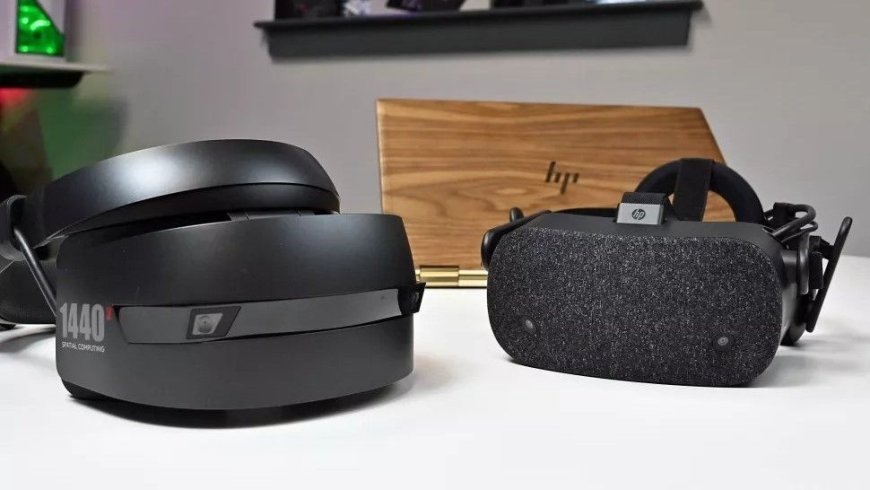Windows Mixed Reality Deprecation
This section will introduce Microsoft's decision to deprecate Windows Mixed Reality, outlining the key elements of this announcement and setting the stage for a detailed discussion on its implications and the company's shifting focus in the realm of virtual and mixed reality technologies.

History and Development of Windows Mixed Reality
Here, we'll take a look back at the launch and evolution of Windows Mixed Reality since its inception in 2017. This will include an overview of the partnerships with PC manufacturers like Dell, HP, Acer, Lenovo, and Samsung, and how the platform compared with competitors like Oculus Quest and HTC Vive at the time.
Also check Lenovo Slim 7i Pro X 14" Laptop Review
The Decline of Windows Mixed Reality
This part of the article will explore the factors leading to the decline of Windows Mixed Reality, such as the lack of widespread adoption, competition from other VR platforms, and the sporadic release of new headsets by the partnering companies.
Impact on Mixed Reality Portal and Steam Integration
Focusing on the specific components of the Windows Mixed Reality ecosystem, this section will discuss the implications of deprecating the Mixed Reality Portal app and the integration with Steam, and what this means for users and developers.
HoloLens 2: Microsoft's Remaining Stake in Mixed Reality
Here, we'll shift the focus to HoloLens 2, discussing its role as Microsoft's primary mixed reality platform. This will include an analysis of its target market, pricing, and the uncertain future of the HoloLens series, especially in light of Alex Kipman's departure from the company.
Comparing Microsoft's VR Strategy with Competitors
This section will provide a comparative analysis of Microsoft's approach to VR and MR technologies with that of its competitors, including Meta (formerly Oculus), Sony's PlayStation VR, and the anticipated entry of Apple into the space.
Microsoft's Collaboration with Meta
Delving into Microsoft's recent partnership with Meta, we will discuss how this collaboration, particularly in bringing Office and Xbox Cloud Gaming to Quest, reflects Microsoft's broader strategy of platform agnosticism and its focus on software and services.
Reflecting on the Potential of Windows Mixed Reality
In a more personal reflection, this part will recount experiences with the Windows Mixed Reality platform, discussing its potential and the realities of using VR for everyday tasks like work, as well as the advancements in VR technology since 2017.
The Future of VR and MR Technologies
This section will speculate on the future of VR and MR, considering the advancements in technology, the entry of new players into the market, and the evolving consumer and business applications for these technologies.
Microsoft's Shifting Focus in the VR/MR Space
Here, we will discuss how Microsoft's decision to deprecate Windows Mixed Reality aligns with its broader business strategy and focus areas, particularly in light of the evolving VR/MR landscape and the company's strengths in software and cloud services.
Implications for the VR/MR Industry
This part will explore the broader implications of Microsoft's decision for the VR/MR industry, including potential gaps in the market, opportunities for other players, and the impact on developers and consumers who invested in the Windows Mixed Reality ecosystem.
Conclusion: What This Means for Microsoft and the Industry
The article will conclude with a summary of the key takeaways from Microsoft's decision to deprecate Windows Mixed Reality, what it suggests about the company's strategic direction, and how it may influence the broader VR and MR industry in the coming years.


































